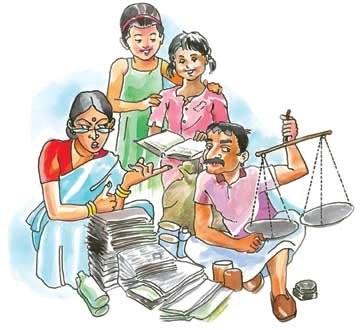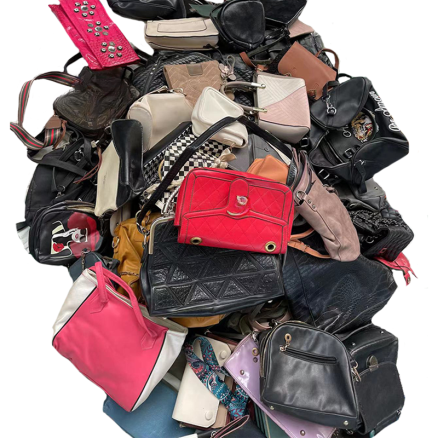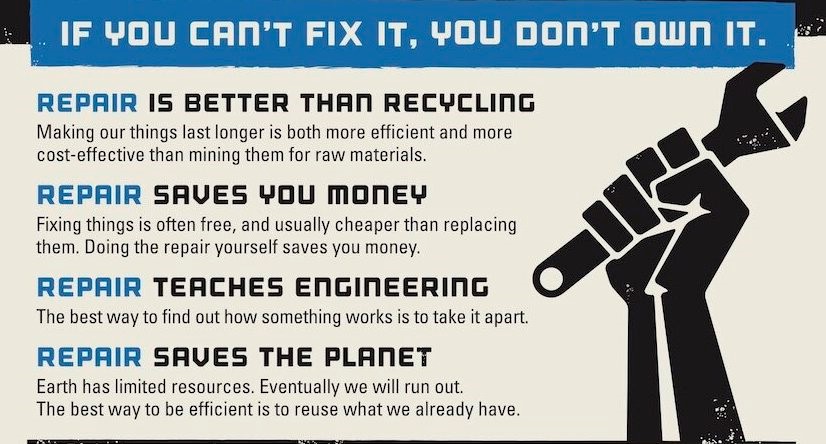Reuse, Repair, Recycle: Wisdom of Indian Habits
Back To Home Posted on: 16/10/2024
Are we seeing the end of the era dominated by fast fashion and consumerism, as the younger generations seems to embrace Right to Repair, recycle and reuse? In India, we all grow up with these being part of life, so inculcated that we don’t even think about it. The traditional Indian practices of reuse and recycling offer sustainable alternatives as not just lifestyle but have significant economic and ecological benefits. While the West is often labeled as throwaway culture driven by rapid consumption, India’s ingrained habits present a more mindful approach.

India's economy is bolstered by its habits of thrifting and repurposing, borne out of necessity. Its philosophy has also aided this with the beliefs in simple living, detachment to worldly goods, which have created a model where less truly can be more. The western world with fast consumerism is now realizing the economic and ecological perils of over consumption. The concept of slow fashion, which emphasizes quality over quantity, resonates deeply with Indian consumers who often prioritize durability. For instance, Indian households frequently reuse old garments, turning them into rags or even repurposing them into new fashion pieces, thus reducing the demand for new textiles.
The concept of circular economy is the academic theorization of the Indian habits. A study has revealed that moving to recycling goods could yield over $1 trillion in material savings for the fashion industry alone. It is also a misconception that recycling will reduce jobs, fostering reuse and recycling can also create new job opportunities. According to the International Labour Organization (ILO), the circular economy could generate up to 7 million additional jobs globally by 2030. That Pre-loved bag or garment could save not just pennies from the user but also create some jobs, save environment and reduce mindless consumption.



The environment and ecological impact of consumerism are no longer debated and are infact recognized as a danger by everyone. As per a study, an average American generates approximately 2,200 pounds of waste annually, much of it stemming from disposable products. The Insta reels of desi moms reacting with horror to the over packaging, excessive tear and throw of kitchen towels and tissues and food containers is only funny in parts. Indians and most oriental cultures follow historical practices of reuse, cleaning and keeping old containers for storing food, using take-away boxes for sending food, keeping bags for re-storing and even using old clothes as rags. These small steps mitigate waste significantly. The Indian ethos of ‘jugaad’or a practical, resourceful approach to problem-solving, has created a mindset that extracts maximize value from existing resources. This is a natural result of being resource scarce economy but its benefits are more than just resource conservation. A Central Pollution Control Board, India report claims that Indiana recycles about 60% of its plastic waste, compared to about 9% in the United States. These practices help preserve natural resources, reduce landfill waste, and minimize environmental degradation.

Another emerging concept that aligns with Indian habits is the right to repair. This is a direct result of electronic brands creating products that can’t be opened and repaired. Even the western world was dotted with repairmen and handymen who could repair everything from watches to cars. Most children remember tinkering with their dad’s tools, a memory and activity that has nearly disappeared from modern lives. Recent movements advocate consumers' ability and right to fix their own products rather than discarding them. In India, repair shops are still common. Electronics to appliances, Indians prefer to repair rather than replace and these habits not only conserves resources but also supports local economies. A study from Repair.org estimated that a right-to-repair policy could save consumers around $40 billion annually in the U.S. alone.
The concepts of circular economy, where products are designed for longevity, repairability, and recyclability create sustainable business models that benefit both the environment and the economy. Embracing concepts like slow fashion, the right to repair, preloved and repurposed luxury will not just not just conserve resources, create new avenues for growth but also allow us all to breathe easy. The time-tested practices can build a more resilient economy and a healthier planet for future generations.